Man-Made plants (was Plant Snatchin')
ljrmiller
18 years ago
Related Stories

FLOWERSRudbeckia Mania: Go Beyond Black-Eyed Susan in the Garden
Branch out from typical nursery fare, with lesser-known Rudbeckia species that have delightfully unexpected features
Full Story
LANDSCAPE DESIGNArtistic Planting Ideas From a Brazilian Superstar
His abstract designs and native plantings changed the face of landscape architecture. Could Roberto Burle Marx’s style enhance your garden?
Full Story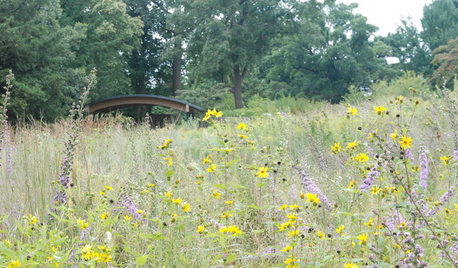
GARDENING GUIDESHow to Find the Right Plants for Your Garden
Break free from choosing plants by cold-hardiness zones for a beautiful landscape that thrives year-round
Full Story
TREESGreat Design Plant: Sabal Palm Enchants in Balmy Sites
Towering and tolerant, this tree blends in, stands out and happily stars in vacation photos
Full Story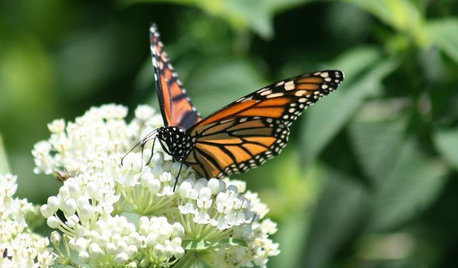
GARDENING GUIDESGreat Design Plant: Milkweed
Quit cringing. This not-weed plant is a sight to behold in the garden, has a delicious vanilla scent and is a magnet for butterflies
Full Story
GARDENING FOR BUTTERFLIES3 Ways Native Plants Make Gardening So Much Better
You probably know about the lower maintenance. But native plants' other benefits go far beyond a little less watering and weeding
Full Story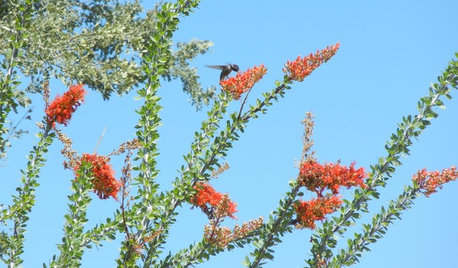
GARDENING FOR BUTTERFLIESGreat Design Plant: Ocotillo for High-Reaching Flair
Add a dramatic accent to a dry landscape with this striking desert plant silhouetted against the sky
Full Story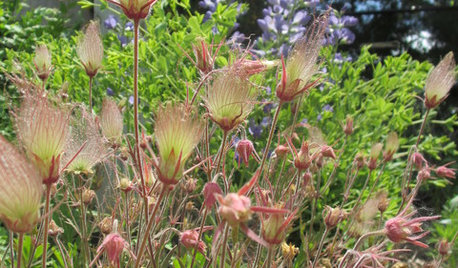
GARDENING GUIDESGreat Design Plant: Geum Triflorum
Nodding red blooms, glittery effervescent seed heads and a tough-as-nails constitution make prairie smoke a winning ground cover
Full Story
PLANTING IDEASPlant Your Hardscape for Unexpected Green
Nestle greenery among pavers, steps and more for a yard brimming with life and creativity
Full Story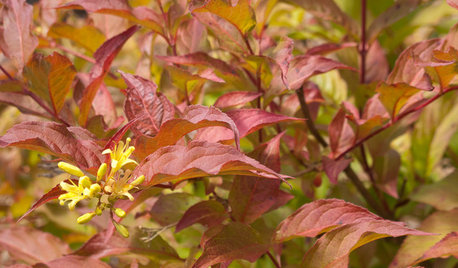
GARDENING GUIDESGreat Design Plant: Northern Bush Honeysuckle, a Bronze Beauty
It helps control erosion and takes sun or shade. The butterflies love it. But the best part of this shrub may be the vivid foliage
Full StoryMore Discussions






planty01976
planty01976
Related Professionals
Maple Valley Landscape Architects & Landscape Designers · Barrington Landscape Contractors · Los Banos Landscape Contractors · Metairie Landscape Contractors · Oakland Landscape Contractors · Riverview Landscape Contractors · Sun City Center Landscape Contractors · Franklin General Contractors · Hanford General Contractors · Signal Hill General Contractors · Wichita Siding & Exteriors · Annapolis Siding & Exteriors · Kannapolis Siding & Exteriors · Yorkville Siding & Exteriors · North Richland Hills Siding & Exteriorsplanty01976
planty01976
klavier
honeybunny442
ljrmillerOriginal Author
bluebonsai101
ooojen
ljrmillerOriginal Author
ljrmillerOriginal Author
planty01976
susanlynne48
klavier
ljrmillerOriginal Author
bluebonsai101
ljrmillerOriginal Author
planty01976
klavier
ooojen
susanlynne48
ljrmillerOriginal Author
bluebonsai101
susanlynne48
MacDaddy
ljrmillerOriginal Author